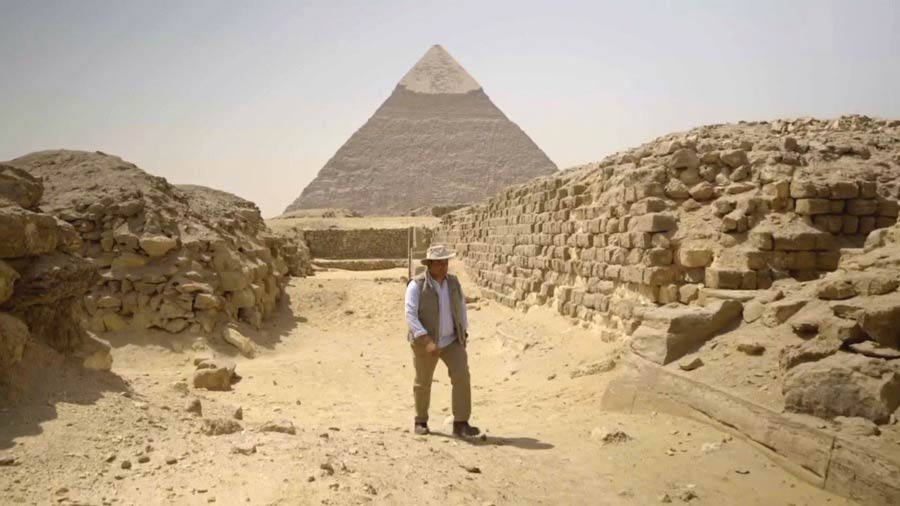First Civilizations episode 1 – War – Examine the process of “destructive creation”, the idea that fear, rivalry and conflict strengthen community bonds while stimulating an arms race of technological progress. The result is civilization. Ancient Mesoamerica exemplifies this development.
First Civilizations Having lived as mobile foragers for 99 percent of our time on Earth, why did humans set out on the road to civilization? How did they create villages, towns, cities, and states, and establish the blueprint for the modern world?
First Civilizations episode 1 – War
First Civilizations identifies four cornerstones of civilization – war, religion, cities and trade – and explores each in the context of a different location, from Mexico, Guatemala, Iraq, Turkey, Egypt, India, and Pakistan, to Oman, Morocco, France, Germany, Japan, the United Kingdom, and the United States. Unearth the latest archaeological discoveries, test new theories, and uncover original information as dramatic reconstructions and computer graphics visualize the lost world of the first civilizations.
In each of the four episodes, discover how our ancestors were motivated by the same impulses that persist today – the inevitability of war, a need for religion, the lure of the city, and a love of trade.
Civilization
A civilization or civilisation is any complex society characterized by urban development, social stratification imposed by a cultural elite, symbolic systems of communication (for example, writing systems), and a perceived separation from and domination over the natural environment.
Civilizations are intimately associated with and often further defined by other socio-politico-economic characteristics, including centralization, the domestication of both humans and other organisms, specialization of labour, culturally ingrained ideologies of progress and supremacy, monumental architecture, taxation, societal dependence upon farming and expansionism. Historically, civilization has often been understood as a larger and “more advanced” culture, in contrast to smaller, supposedly primitive cultures.
Similarly, some scholars have described civilization as being necessarily multicultural. In this broad sense, a civilization contrasts with non-centralized tribal societies, including the cultures of nomadic pastoralism, Neolithic societies or hunter-gatherers, but sometimes it also contrasts with the cultures found within civilizations themselves. As an uncountable noun, “civilization” also refers to the process of a society developing into a centralized, urbanized, stratified structure. Civilizations are organized in densely populated settlements divided into hierarchical social classes with a ruling elite and subordinate urban and rural populations, which engage in intensive agriculture, mining, small-scale manufacture and trade. Civilization concentrates power, extending human control over the rest of nature, including over other human beings.
Mesoamerica
Mesoamerica is a historical region and cultural area in North America. It extends from approximately central Mexico through Belize, Guatemala, El Salvador, Honduras, Nicaragua, and northern Costa Rica, and within this region pre-Columbian societies flourished before the Spanish colonization of the Americas. In the 16th century, European diseases like smallpox and measles caused the deaths of upwards of 90% of the indigenous people. It is one of five areas in the world where ancient civilization arose independently, and the second in the Americas along with Norte Chico (Caral-Supe) in present-day Peru, in the northern coastal region.





Pingback: Racism - A History episode 1 - The Colour of Money — HDclump
Pingback: History of Ancient Britain part 4— arrival of metals and the social revolution